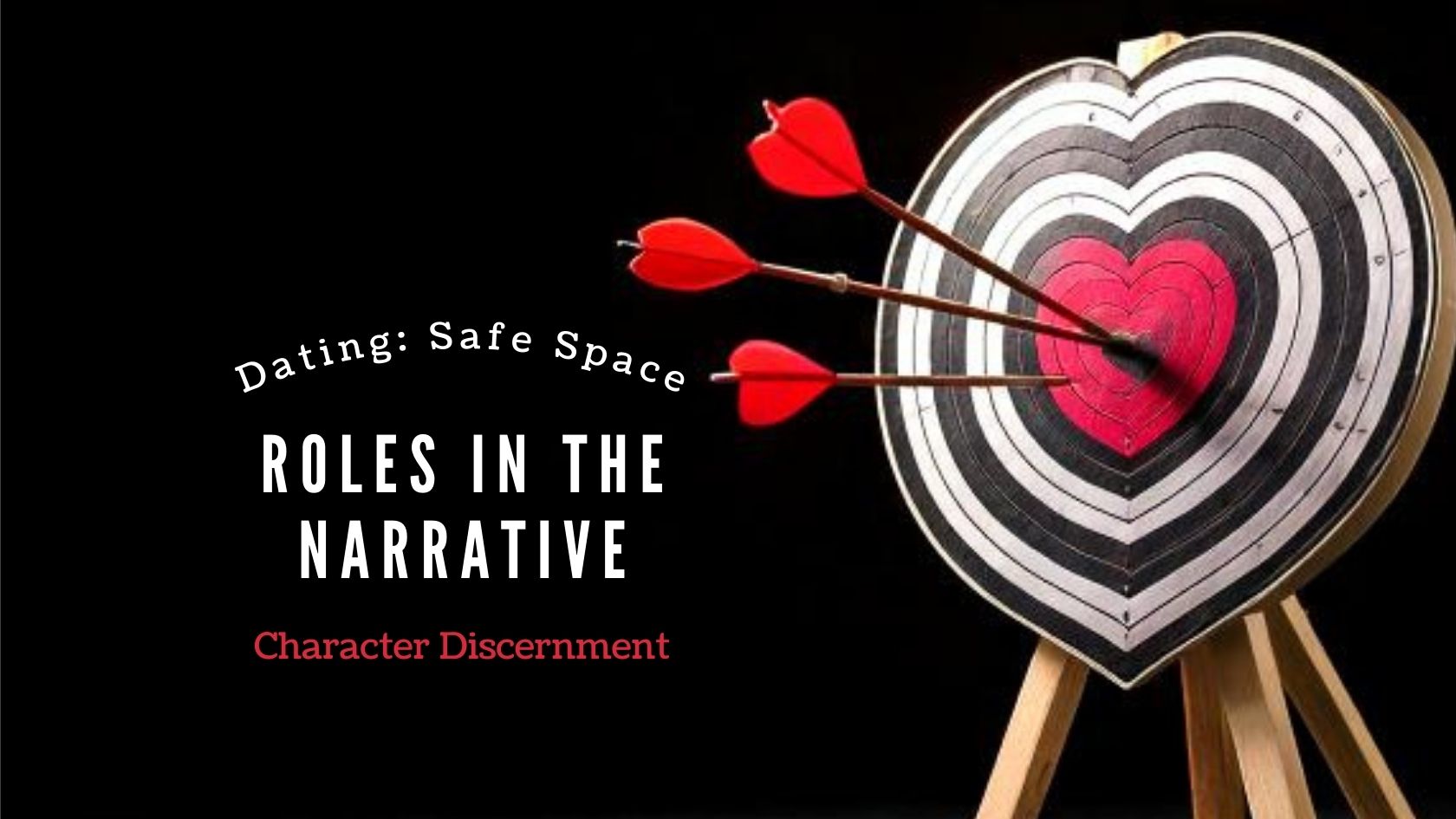Character Discernment: Roles in The Narrative

Our personal stories, especially within the context of dating and relationships, show ourselves embodying roles that are reminiscent of the archetypal characters found in fiction. Archetypal characters can be shorthand for personal Character—the moral qualities of a person. After all, that’s how the best stories are crafted—strong characters. These roles, while they indicate the history of understanding and growth, can also reveal patterns of behavior that either foster healthy relationships or contribute to toxicity and their breakdown. The choice is in the hands of the person. The discernment is yours. Judge them according to how they align with your goals, temperament, and serenity.

Listen to how the stories are expressed and how the people cast themselves in the narrative. You don’t need weeks or months to find fit and rhythm. You only need them to tell their stories. Here are six roles people might take in their stories, including a description of each and how their expression can indicate healthy choices or unsustainable behaviors:
1. The One: The Chosen
- Description: Those who see themselves as “The One” often feel they are somehow chosen or destined for greatness within their narrative. This belief can empower them to take significant risks and inspire others.
- Healthy Choice Behavior: Demonstrating resilience and leadership, taking responsibility for their choices, and inspiring positive change. ACCOUNTABLE
- Unsustainable Choice Behavior: Developing a sense of entitlement or superiority, neglecting the input and well-being of others. ENTITLED
2. Victim: The Persecuted
- Description: Individuals who identify with the victim role often see themselves as perennially wronged or suffering at the hands of others or circumstances.
- Healthy Choice Behavior: Seeking growth and learning from challenging experiences, cultivating resilience. RESILIENT
- Unsustainable Choice Behavior: Adopting a passive attitude towards life’s challenges, avoiding responsibility for personal happiness or change. PASSIVE
3. Hero: The Savior
- Description: The hero archetype embodies the protector and the one who sacrifices for the greater good, often putting others’ needs before their own.
- Healthy Choice Behavior: Showing compassion and empathy, acting with courage and integrity. EMPATHETIC
- Unsustainable Choice Behavior: Neglecting one’s own needs or feelings, or developing a savior complex. EGOTISTIC
4. The Martyr: The Self-Sacrificer
- Description: People who take on the martyr role frequently give more of themselves than is healthy, often seeking approval or love through their sacrifices.
- Healthy Choice Behavior: Demonstrating selflessness and generosity in a balanced manner. GENEROUS
- Unsustainable Choice Behavior: Overextending themselves to the point of resentment or burnout, possibly manipulating others through their sacrifices. RESENTFUL
5. The Know-It-All: The Perceptive Critic
- Description: This role is characterized by a sharp wit and a keen eye for truth, often able to call out inconsistencies or falsehoods where others may not.
- Healthy Choice Behavior: Using their insights to guide others toward truth and personal growth. CRITIQUING
- Unsustainable Choice Behavior: Becoming overly critical or dismissive, potentially alienating others and hindering their own emotional connections. CRITICAL
6. The Mystic: The Introspective Guide
- Description: Mystics are deeply reflective and often focus on the processes and decisions that lead to outcomes. They value understanding and growth.
- Healthy Choice Behavior: Encouraging deeper thinking and connection, fostering personal and mutual growth. DISCERNING
- Unsustainable Choice Behavior: Becoming detached from reality, or so focused on introspection that they neglect practical or emotional needs. DELUSIONAL
Reflection:
In exploring these roles, it’s essential to recognize that each of us might embody different aspects of these archetypes at various points in our lives or even within a single relationship. The key to fostering health and sustainability in our choices lies with inviting balance—evolving as our awareness reveals that we need more information. We must seek growth when the path to our goals, peace, and serenity calls for reevaluation and change. By understanding the roles we play, we can navigate our paths with greater awareness and empathy, paving the way for clear evaluation of our interactions and connections with others. We gain the ability to discuss their character and determine their alignment and fit with us. And we can let them go when they are not a match.
